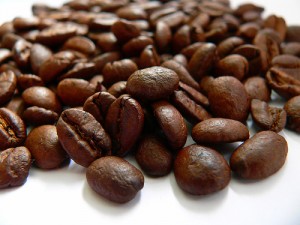90 percent of people today drink or eat the equivalent of two to three cups of caffeinated coffee. Four out of five Americans have two to four cups every day, while 25 percent qualify as true addicts of caffeine by drinking more than five cups of coffee in a 24-hour period. Caffeine has been added to more than 1,000 non-prescription medications including diet pills, stay-awake pills, cold tablets, and headache and allergy remedies. Chemically, it is in a group of compounds called xanthenes, a mild central nervous stimulant. In addition to coffee and tea it’s in cola beverages, chocolate, and many prescription and nonprescription medicines. It also provides a delicious taste to baked goods and other yummy treats. The slightly bitter flavor is often used to balance the sweetness of the sugar in these products. Your personal reaction to caffeine will be influenced by several factors including the amount you consume in relation to your body weight, your age, your emotional or nervous state, and how often you consume it. Once caffeine enters your blood it increases your heart rate, promotes secretion of stomach acid, speeds up urine production, dilates some blood vessels and constricts others. If you’ve ever experienced jitteriness from caffeine you know how it can easily cause trembling, depression, diarrhea, loss of appetite, nervousness, and chronic muscle tension. Many individuals drink caffeinated drinks because, within a small period of time, they can provide a state of alertness that can last up to at least two hours. Caffeine has also been proven to increase alertness, decrease fatigue, and suppress appetite. Many medical researchers report it aggravates fluid retention and pain in fibrocystic conditions. One study showed stated “eliminating caffeine from the diet brought extraordinary relief from fibrocystic disease.” Women who drink large amounts of caffeinated beverages are seven times more likely to report moderate to severe pre-menstrual symptoms than those who have a caffeine-free diet. The most common symptom triggered by caffeine is sleeplessness. Although it hasn’t been shown to be as physiologically addictive as hard drugs, caffeine withdrawal can trigger severe headaches, jitters, irritability, sleepiness, and reduced alertness. Because the human body becomes so incredibly used to the drug, people who use caffeine for its stimulant quantities need more and more over the course of their life.
http://www.mayoclinic.org/healthy-living/nutrition-and-healthy-eating/in-depth/caffeine/art-20045678


Awesome topic because I love coffee. For me, I don’t even have to get out of bed to make myself coffee, I just turn over and turn the espresso machine on for myself. I am dependent on espresso in the morning, it’s the only thing that can wake me up early in the morning. I can see how too much coffee can be negative because too much of any caffeine is never good for you. Look what I found!
Awesome topic because I love coffee. For me, I don’t even have to get out of bed to make myself coffee, I just turn over and turn the espresso machine on for myself. I am dependent on espresso in the morning, it’s the only thing that can wake me up early in the morning. I can see how too much coffee can be negative because too much of any caffeine is never good for you. Look what I <a href=http://www.webmd.com/vitamins-supplements/ingredientmono-980-COFFEE.aspx?activeIngredientId=980&activeIngredientName=COFFEE"!